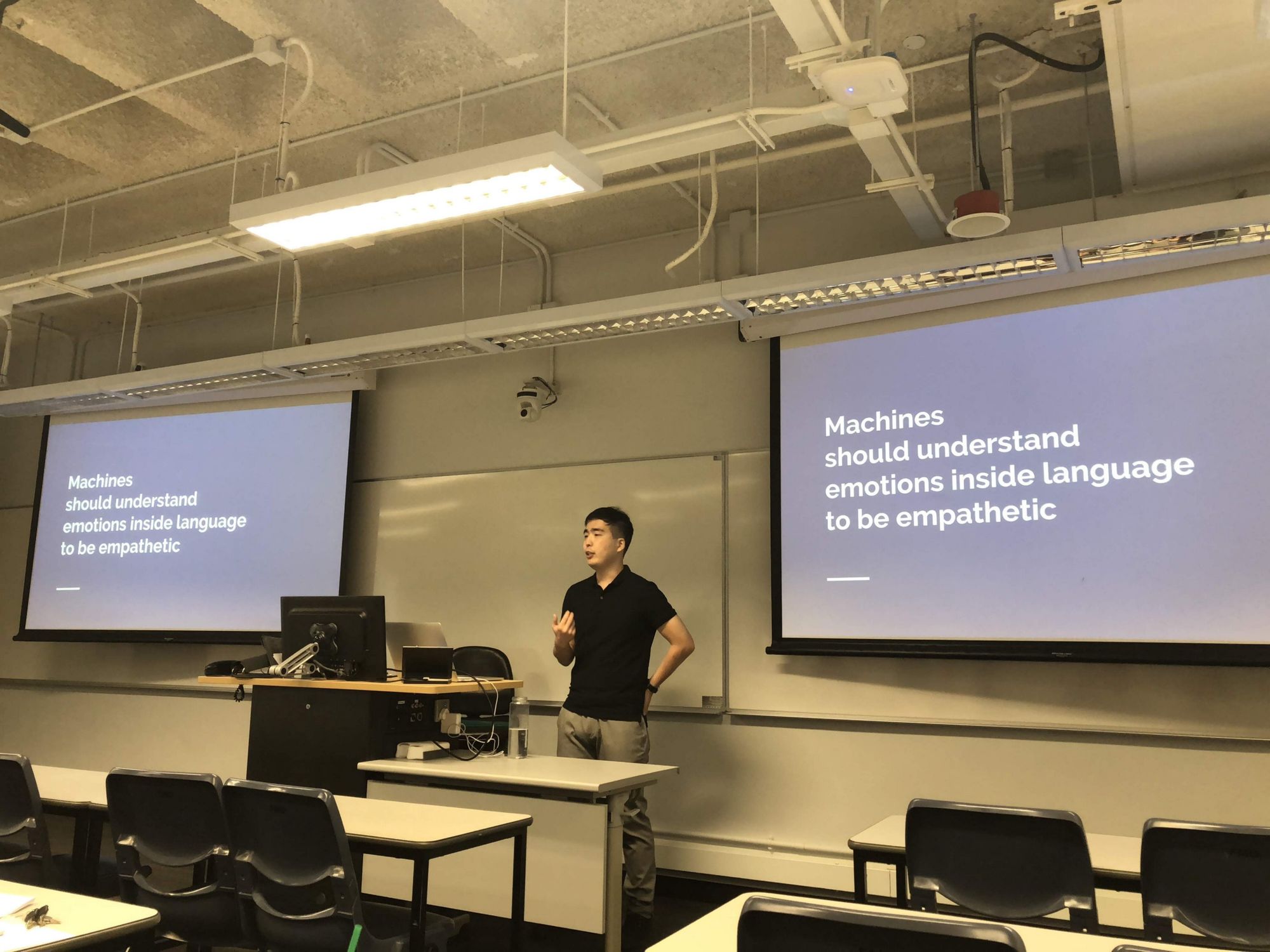Finishing up two years of MPhil degree, what’s next?
Two years in Academia was great.
In Summer 2016, I decided to start a new life as a postgraduate research student in the area of natural language processing (NLP) and machine learning. My primary goal was to become a person who can understand the field (able to read and understand academic papers to a certain degree) and can produce some valid research work (able to fully follow and complete a research cycle). After I had finally finished defending my Master of Philosophy (MPhil) and receive a pass, I feel confident enough to say that I know much more about the field than most people do.
I can imagine myself in academia, continuing being a Ph.D. candidate, becoming a research intern in one of those larger corporate labs in the US or China, and publishing more papers at conferences. These are the glorious moments. It gives a good comparatively advantage for chasing fame and fancy names on my career. I might even feel like solving bigger problems in the field that everyone wants to contribute.
Inevitable downsides are, of course, advisor-student conflicts, low salary, social detachment, and many other mental consequences caused from prior reasons that most Ph.D. candidates suffer. However, in this post, I do not want to talk about these common topics.
I choose to go back into the startup scene. This choice surprises many people, especially those I met in academia.
I want to draft out my thoughts on why I am choosing this path. Hopefully, it might be a useful reference for those people who have similar considerations.
1. Potential vs. Practicality
“Don’t you want to solve cool problems?” - from the pro-Academia side
The good thing about academia is that people get excited quite easily. They tend to value potential a lot. That is the primary purpose of research — aiming for works that can potentially be the next big thing and make our lives better. Nevertheless, many “cool” research gets discarded from the table. Many “cool” research may not be suitable for practical use, due to many reasons like operational cost, computational inefficiency, or low adaptability. Very few jobs evolve to be legendary, transforming the whole field or industry. I am not saying there is something wrong with this. I believe that such philosophy of research advances technology and engineering.
Nevertheless, my question was: “Do I appreciate doing that myself?”
The answer was NO. For two years of doing research, I realized that I am a person who loves practicality and simplicity. Although potential is valuable, the problems that some research are tackling make me walk away immediately because for me they sounded like: “we will start registering passengers to go back and forth Mars.” (true story). Maybe it will happen one day, and those people working on that problem for decades will be the ones that make it happen. Note that neural networks back in the days were like that.
But the thing is, I do not value too much of “moon-shot” (or, rather, mars-shot) thinking (This is kinda self-contradictory since I decided to come into academia after listening to a conference by Singularity University talking about “moon-shot” thinking).
2. Motivating Factors
“What is the main motivating factors of life?” — myself
My postgraduate student life was all about academic conferences — paper submission deadlines, reviewer comments, acceptance notifications, preparations of invited talks, and attending the conferences. I guess this may be different between labs and advisors, but at least my experience in our lab was very keen on these results, especially for graduation.
To be honest, I hated this cycle. I felt like I was a racehorse chasing for deadlines after deadlines.
Moreover, so much of my performance depended on reviewer comments and the acceptance of the paper. However, I think these reviewing systems in machine learning or artificial intelligence conferences are broken and inconsistent, due to the exponential growth of the number of submissions. I felt like in this kind of system I do not have control over the evaluation of my work(I know a lot of people in academia are trying to fix this problem and sincerely support such movements).
Glory is big, but the cycle is stressful. It is not the life I want to live.
Best of both worlds?
A recent couple of months were a time of struggle to find the best of both worlds. I did not want to abandon what I invested for two years and go back as a software developer. I knocked on many companies by talking to HRs and researchers at conferences and landing an interview with some of them. I found out that many research teams in large IT companies do not work with product teams and focus on publishing in conferences. Also, I confronted other complicated issues such as working visa, but I will talk about that in another post.
I shortly experienced working at a Korean startup that built a social media based on a movie recommendation engine. Now that company has evolved to offer movie streaming service based on that engine, having a hard fight with Netflix. One thing I remember is that a startup company has a lot of problems to solve.
Nevertheless, people love their product (I am still one of their active users). They feel that their machine learning algorithms create some value for their lives and continue spending time and money on the product. When we were building the product, we were sometimes happy, sometimes sad after reading user’s product reviews or seeing the fluctuations of the service usage. Everything was imperfect, and the company was at war every day, but I felt more motivated trying to find problems that I can solve.
Now I have the knowledge and skills to build that kind of machine learning engine to run a consumer service (at least I can try).
I made my choice to work at Oyalabs, a baby-tech startup that builds a smart baby monitor that can help parents to boost their baby’s speech development.
We are making a device that can analyze what and how much the parents are speaking to the baby and give feedback about improving their parenting. The importance of parent-baby interactions is supported by not only neuroscience and education research but also parenting cultures, especially in Asia (I bet Koreans who are reading this know the importance of 태교(胎敎)).
As a machine learning engineer (NLP), I will be developing the machine learning engines for our product! I am aware that it is a very very very difficult task, but I am excited!

